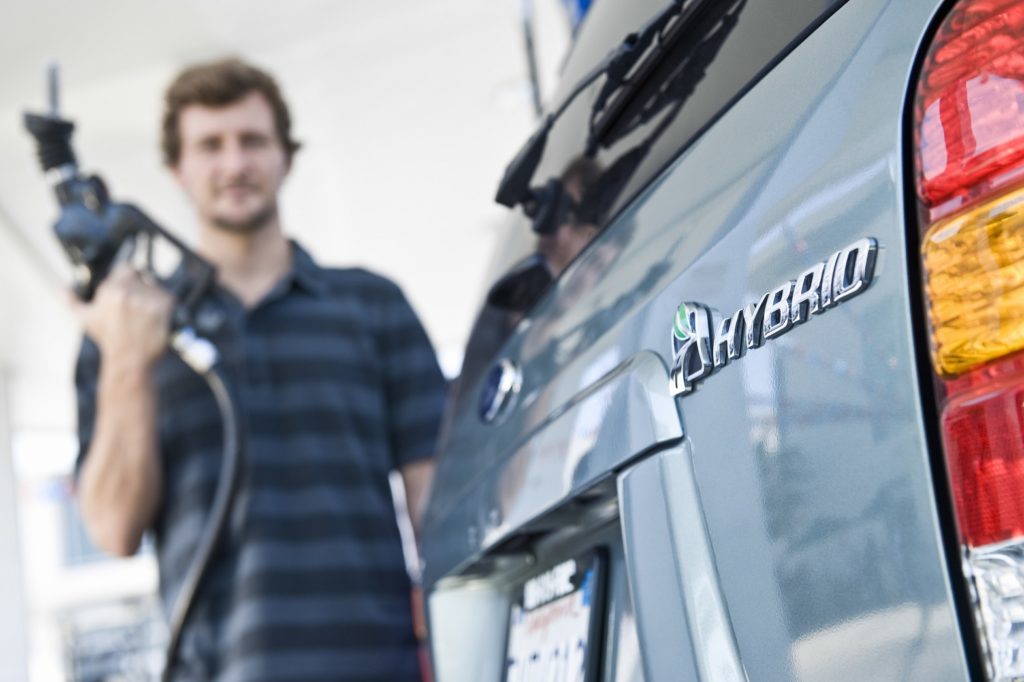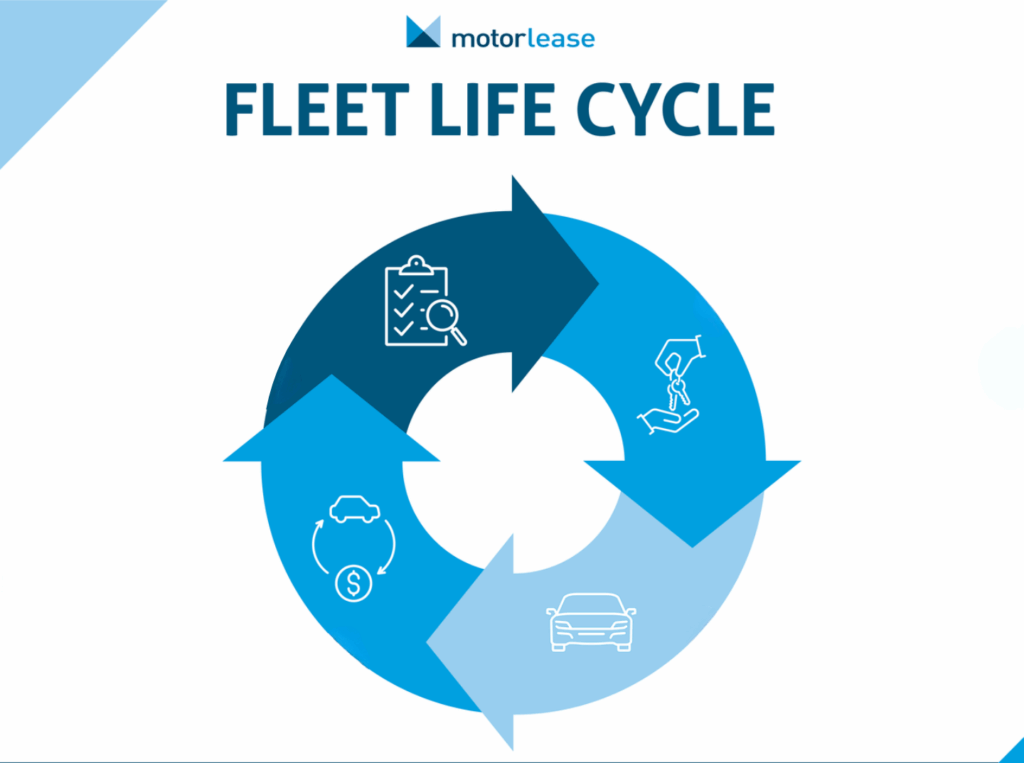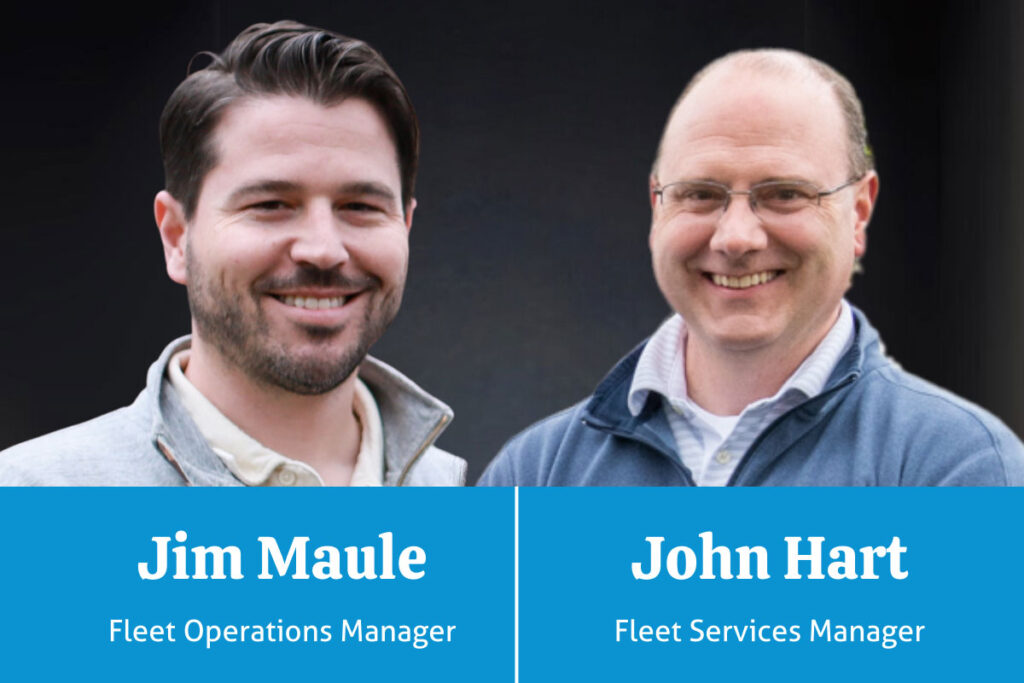While nearly everyone has heard of hybrid vehicles, most people are actually unaware of the various types out on the market. In this article, we’ll take a look at the 4 main types of hybrid vehicles and describe what makes each of them unique.
In This Article
Mild Hybrids
Full Hybrids
Plug-In Hybrids
Electric Vehicles with Range Extender Hybrids
Mild Hybrids
One of the newest innovations in hybrid technology is that of a “mild” hybrid system. Like the name implies, a mild hybrid system typically isn’t going to propel the vehicle on electric power alone. Instead, the system is used to give a small boost to the vehicle’s gasoline engine, typically upon acceleration from a dead stop, and to assist in removing the burden of power-hungry systems, such as air conditioning, on the gasoline engine. Normally found in the form of 48 volt electric systems, mild hybrids do not need to be plugged in. Instead, the batteries are recharged through a combination of power from the gasoline engine, and energy recovered when the vehicle brakes (also known as regenerative braking).
Mild hybrid systems go by many differing names, but some common examples are eAssist (General Motors), eTorque (Fiat/Chrysler), and EQ Boost (Mercedes).
Full Hybrids
Like mild hybrids, full hybrid vehicles also come equipped with both a gasoline engine and an electrical component. However, the electrical component in a full hybrid vehicle is capable of handling far more of the workload than that of a mild hybrid. Most full hybrids can actually operate for some distance solely on electric power. This typically happens at lower city speeds, but is one reason why you may see a full hybrid’s City MPG rating higher than its Highway MPG rating (where in standard gasoline-powered vehicles, the opposite is true).
When it comes to full hybrid vehicles, there are two main types of powertrains; Parallel hybrids and Series hybrids.
With Parallel hybrids, the engine can be powered in one of 3 ways: directly by the engine, directly by the electrical motor, or by both systems working together.
In a Series hybrid, the wheels are powered solely via the electric motor, with the gasoline-engine providing power for the electric motor, sort of like a generator. The gasoline-engine never actually powers the wheels.
With advances in hybrid technology, some vehicles operate as a combination of the two (aptly named “series-parallel” hybrids), with the on-board computer system choosing the most efficient way to operate at any given time.
Full hybrids charge their battery system in essentially the same way as mild hybrid systems, through energy from the gasoline engine as well as regenerative braking.
Plug-In Hybrids
All of the hybrid vehicles that we have discussed thus far charge their batteries solely through internal means. The main difference with plug-in hybrids is that these vehicles can charge their batteries via external chargers as well as internal. As a result, plug-in hybrids usually have greater electric-only ranges than full hybrids. Plug-In hybrids essentially serve as a half-way point between full hybrid vehicles and fully electric vehicles.
Electric Vehicles with Range Extender Hybrids
While all-electric vehicles technically don’t qualify as hybrids, there are some that come equipped with a small gasoline engine to provide a cushion when needed. When an electric vehicle runs out of power, the vehicle will need to be charged before it becomes operational again. These range extender hybrids utilize their gasoline engine to charge the battery or power the electric motor so that you’re not left stranded. Depending on the size of the gasoline engine, this can mean anywhere from a few dozen miles to hundreds.












